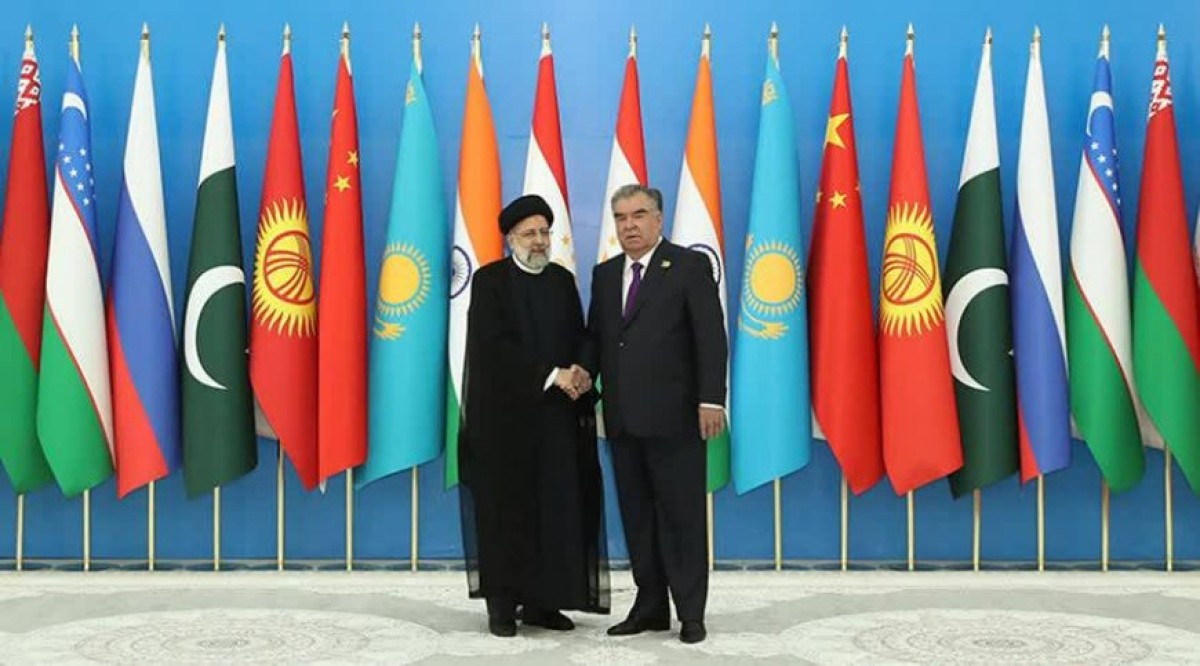 845
845
Shanghai Cooperation Organization Strategic Vision: Paving the Way for a Secure Tomorrow?
Shanghai Cooperation Organization Strategic Vision: Paving the Way for a Secure Tomorrow?
By: M. Sharifi
In recent years, the economic aspect of the Shanghai Cooperation Organization (SCO) has garnered significant attention. However, it is crucial to recognize that the foundation of this organization primarily lies in a 5-way security agreement between China, Russia, Kazakhstan, Kyrgyzstan, and Tajikistan. The primary motivations for countries joining the SCO have been political, defense, and security-related.
The SCO boasts an impressive roster of main members, including Iran, Russia, China, India, Kazakhstan, Kyrgyzstan, Pakistan, Tajikistan, and Uzbekistan. Furthermore, observer members and dialogue partners such as Afghanistan, Turkey, the Republic of Azerbaijan, Armenia, Qatar, and Saudi Arabia also contribute to the diverse composition of this organization.
The recent uptick in terrorist attacks within the geographical expanse of SCO member countries underscores the pressing need to enhance defense relations among members. Terrorism, extremism, and separatism have long been focal points of the SCO's security duties and activities. As such, member countries are united in their concerns regarding these threats and the imperative to strengthen the organization's counterterrorism efforts.
The 21st meeting of the defense ministers of the SCO, held in Astana, Kazakhstan, on May 7, emphasized the escalating international terrorism landscape and underscored the necessity of boosting defense relations within the framework of the organization. Key factors driving the importance of bolstering anti-terrorism measures within the SCO include the rise of extremism in the region, the ongoing activities of terrorist groups like ISIS, and the geopolitical ramifications of internal insecurity.
Among the proposed solutions to reinforce the security and defense capabilities of the SCO members, Iran has put forth several notable suggestions. These include the establishment of a counter-terrorism research center, enhanced cooperation in tackling emerging threats such as cyber terrorism and cryptocurrency financing of terrorist activities, and the creation of an information security center for seamless data sharing among members.
Iran has also expressed its readiness to host a joint anti-terrorism exercise in 2025 and facilitate scientific engagements to delve into the multifaceted dimensions of terrorism. The proposal to form a defense industry structure or working group signifies a commitment to collaborative efforts in confronting potential security threats.
In conclusion, as extremism and terrorism continue to pose significant challenges for SCO members, concerted regional strategies must be devised to address these shared threats. Leveraging the existing security cooperation mechanisms within the SCO, along with the legal framework that binds member states, is essential to combating terrorism collectively. The importance of fostering cooperation with other regional and international partners cannot be understated in the context of combating terrorism effectively.
In recent years, the economic aspect of the Shanghai Cooperation Organization (SCO) has garnered significant attention. However, it is crucial to recognize that the foundation of this organization lies in a 5-way security agreement between China, Russia, Kazakhstan, Kyrgyzstan, and Tajikistan. The primary motivations for countries joining the SCO have been political, defense, and security-related.
The SCO boasts an impressive roster of main members, including Iran, Russia, China, India, Kazakhstan, Kyrgyzstan, Pakistan, Tajikistan, and Uzbekistan. Furthermore, observer members and dialogue partners such as Afghanistan, Turkey, the Republic of Azerbaijan, Armenia, Qatar, and Saudi Arabia also contribute to the diverse composition of this organization.
The recent uptick in terrorist attacks within the geographical expanse of SCO member countries underscores the pressing need to enhance defense relations among members. Terrorism, extremism, and separatism have long been focal points of the SCO's security duties and activities. As such, member countries are united in their concerns regarding these threats and the imperative to strengthen the organization's counterterrorism efforts.
The 21st meeting of the defense ministers of the SCO, held in Astana, Kazakhstan, on May 7, emphasized the escalating international terrorism landscape and underscored the necessity of boosting defense relations within the framework of the organization. Key factors driving the importance of bolstering anti-terrorism measures within the SCO include the rise of extremism in the region, the ongoing activities of terrorist groups like ISIS, and the geopolitical ramifications of internal insecurity.
Among the proposed solutions to reinforce the security and defense capabilities of the SCO members, Iran has put forth several notable suggestions. These include the establishment of a counter-terrorism research center, enhanced cooperation in tackling emerging threats such as cyber terrorism and cryptocurrency financing of terrorist activities, and the creation of an information security center for seamless data sharing among members.
Iran has also expressed its readiness to host a joint anti-terrorism exercise in 2025 and facilitate scientific engagements to delve into the multifaceted dimensions of terrorism. The proposal to form a defense industry structure or working group signifies a commitment to collaborative efforts in confronting potential security threats.
In conclusion, as extremism and terrorism continue to pose significant challenges for SCO members, concerted regional strategies must be devised to address these shared threats. Leveraging the existing security cooperation mechanisms within the SCO, along with the legal framework that binds member states, is essential to combating terrorism collectively. The importance of fostering cooperation with other regional and international partners cannot be understated in the context of combating terrorism effectively.
 845
845
Comment
Post a comment for this article